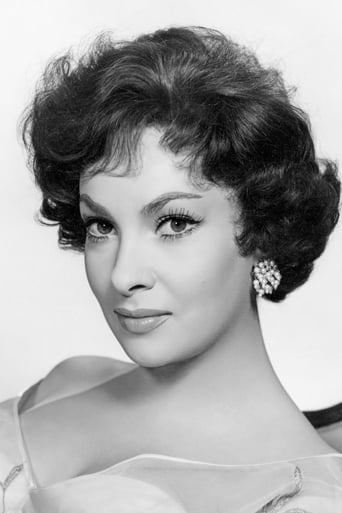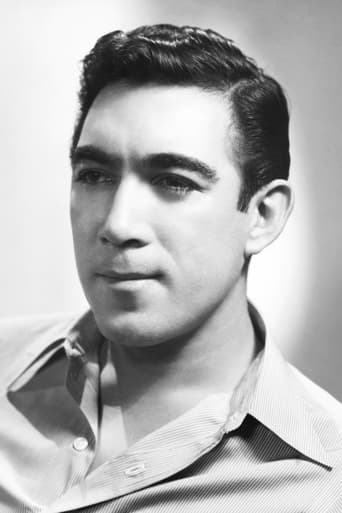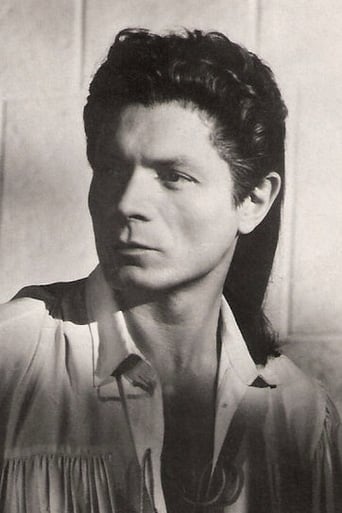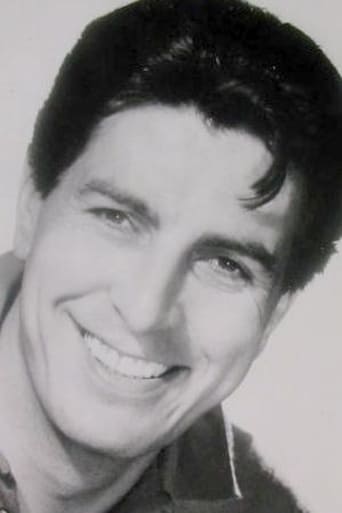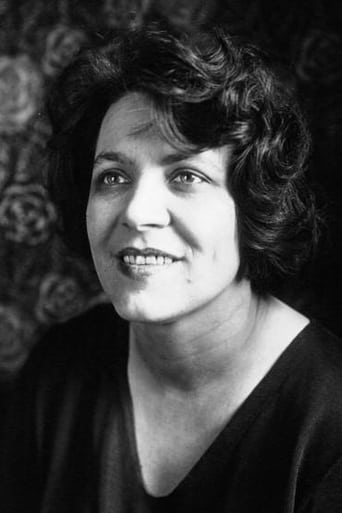ShangLuda
Admirable film.
Kien Navarro
Exactly the movie you think it is, but not the movie you want it to be.
Zandra
The movie turns out to be a little better than the average. Starting from a romantic formula often seen in the cinema, it ends in the most predictable (and somewhat bland) way.
Scarlet
The film never slows down or bores, plunging from one harrowing sequence to the next.
TheLittleSongbird
The best version of Victor Hugo's classic The Hunchback of Notre Dame(or Notre Dame de Paris) will to me always be Charles Laughton's version, followed by Disney's(very underrated, adaptation-wise there are much more faithful ones but on its own- a much fairer way to judge- it is a wonderful film), Lon Chaney's and Anthony Hopkins'. But there are worse too, there are a few low budget animated versions that range from very poor to mediocre. This version has a lot of good things but also its foibles. The foibles are in particular some sloppy and not really necessary dubbing and the underwhelming rescue of Esmeralda/ Sanctuary scene of any of the adaptations of the book, a far cry from the goose-bump-inducing power that the Laughton and Disney versions had. Jean Danet's Phoebus manages to be incredibly irritating- especially how overly smug he is- and dull, yes even for a character that already is shallow. The film looks great though, there is some great attention to detail and photography, the colour is beautiful. Georges Auric's score is subtly haunting with some rousing parts though personally his score for La Belle Et La Bete is a much better film score from him. The scripting is literate and the direction is hardly an amateur job though a couple of scenes do show a lack of imagination(the Sanctuary scene faring the worst). The story is very faithful in spirit- without being bogged down by being too much so- to the book, the most faithful versions on the whole are between this and Hopkins', unfortunately there is the omission of Frollo and Esmeralda's prison scene which agreed is a pivotal scene that would added much to the two characters. It was really interesting to see Frollo's alchemy and the ending is incredibly moving(the most so perhaps of all the adaptations) and brilliantly executed. There could have been more of Esmeralda and Quasimodo's relationship, but there is still a sense of Esmeralda seeing through Quasimodo's deformity and seeing him for his good qualities, which was touching. The acting is not bad at all mostly, and they are helped by that their characters are not distorted and have flaws instead of being too perfect. Anthony Quinn makes for a deeply felt Quasimodo and Gina Lollobrigida(looking astonishingly gorgeous) is a sensual if not so innocent Esmeralda. In support the standouts are Alain Cuny's darkly brooding but tormented Frollo and Jean Tissler's menacing but subtle Louis XI, though Robert Hirsch Phillippe Clay are good and true to their characters respectively. Djali is very cute as well. Maurice Sarfati is an okay if undistinguished Jehan. In conclusion, a respectable film adaptation of a literary classic but not a great or definitive one. 7/10 Bethany Cox
Armand
it remains a delight. for performance of Quinn and Lollobrigida. for respect for novel. for delicate nuances of adaptation. and, sure, for the virtue to be French. because the tradition of cinema is basic seduction instrument in this case. and that makes difference between it and Hollywood productions of period. at first sigh, interesting is use of public expectations.Anthony Quinn from La Strada does , in new nuances, same kind of role. but sparkles are different and its character is end for Zampano image. beautiful Lollobrigida gives the show of Esmeralda in her personal manner. but, in this case, too, the character is more than a poster. her Esmeralda breathes, loves and fights. she is voluptuous and innocent. and , in this manner, the film remains touching. story is realistic. the work remains fresh. and seductive.
bkoganbing
In this third version of The Hunchback of Notre Dame we get a story far closer to the truth of Victor Hugo's classic novel. Unlike the productions done starring Lon Chaney and Charles Laughton, this one was done in France by the French who took pains to remain faithful to the version Victor Hugo wrote. Note the title in the original French and note it's the cathedral not the hunchback who is the center of the story. That allowed Italian film star Gina Lollobrigida to be billed first and then Anthony Quinn as the hunchback. No doubt about it Lollobrigida is the sexiest Esmerelda going, she makes both Patsy Ruth Miller and Maureen O'Hara look like nuns. Then again she was who the movie going public was paying to see.This is not to take anything away from Anthony Quinn who seems to extend his role as the brutish strong man in La Strada into his portrayal of Quasimodo. Although Charles Laughton's performance is my favorite, this does not denigrate Quinn in any way. The rest of the cast is made up of players from the French cinema. I particularly liked Jean Tissier as the 'Spider King' Louis XI. It's a subtle piece of acting and you can see why this was no man to trifle with.The Hunchback of Notre Dame is a tale of innocence. Quasimodo's to be sure, but even the sexy and voluptuous Esmerelda. She may know all about sex, but she's pretty ignorant in the ways of the political world. Both protagonists are used by forces and people they cannot comprehend.This version of the Victor Hugo classic has its supporters and they should support this great retelling of a classic tale.
dbdumonteil
Non -French users may find it hard to believe it,but Jean Delannoy is despised by almost everybody in his native country.The NOuvelle Vague clique,on H.M. JL GOdard's service ,was always putting him down.That was (and is) certainly unfair cause Delannoy made two great "Maigret" and some of his works "la Symphonie Pastorale " Dieu A Besoin des Hommes" or "les Amitiés Particulières" are certainly worth a watch.His "secret de Mayerling" which is hard to find is certainly interesting too.Lit classics were also one of his favorite genres: abetted by Jean Cocteau,he updated "Tristan and Iseut" (as "l'Eternel Retour" ).Later he would transfer Madame de La Fayette 's "La Princesse de Clèves" (1961) with commendable results -the critics slagged it off- Here he tackles "Notre Dame de Paris" ,with a big budget (wide screen , color and an international cast were not so common in 1956 in France).His version is academic ,as would be Le Chanois's -another Bete Noire of the Nouvelle Vague- "les miserables " (1958).It's icily impersonal ,and it's the actors who save the movie from tedium:although too old ,Lollobrigida has beauty,charm,sensuality and even wit going for her;Quinn is a good -but not as outstanding as Charles Laughton-Quasimodo;Robert Hirsh is excellent as Gringoire;On the other hand,Jean Danet is a mediocre Phoebus.Although inferior to Dieterle's version ,Delannoy's work is more faithful to the novel (the ending notably) but there's a problem concerning Claude Frollo:why has he become a layman?Part of the reason might be found in the director's belief.Jean Delannoy is a true believer: in "Dieu a Besoin des Hommes" he showed spiritual concern.And recently,he released two religious movies in a row " Bernadette" (Soubirous) and "Marie de Nazareth".So maybe ,he changed Hugo's character because it was unbearable to him that a priest should desire a woman.Alain Cuny,whose portrayal of FRollo is a bit monotonous, had a brilliant career ,from Carné's "Les Visiteurs du Soir" to Fellini's "La Dolce Vita" and "Satyricon".


